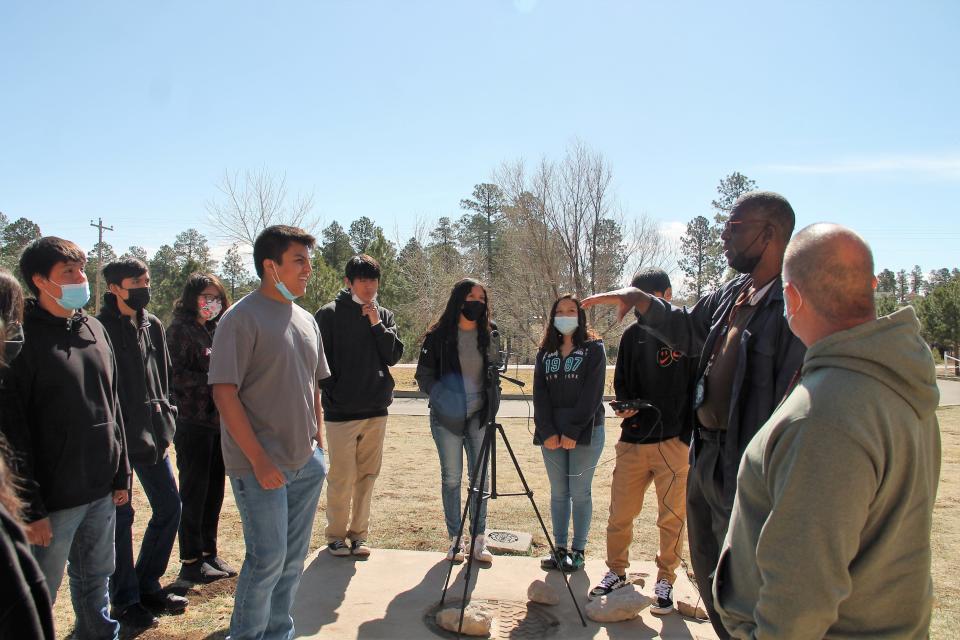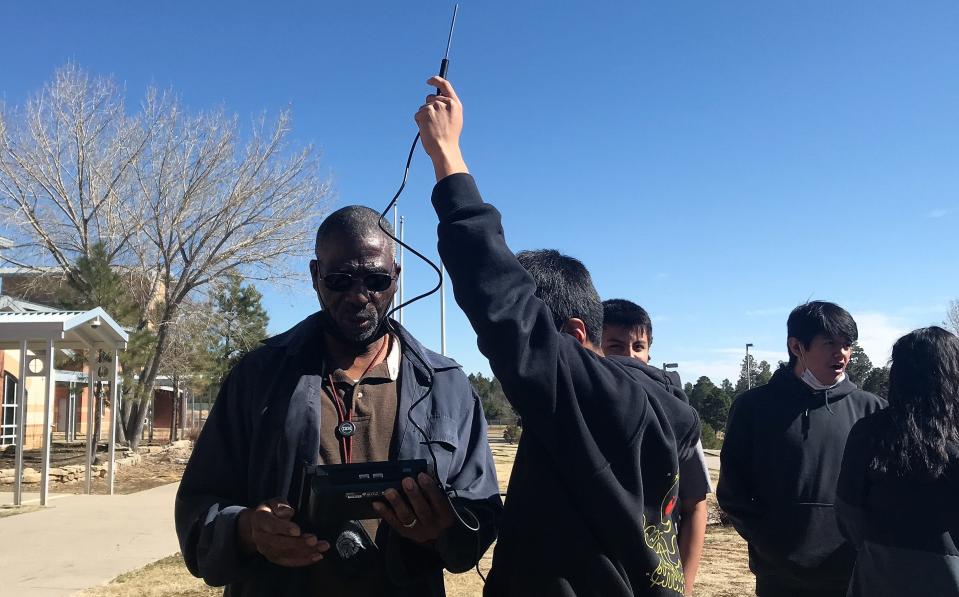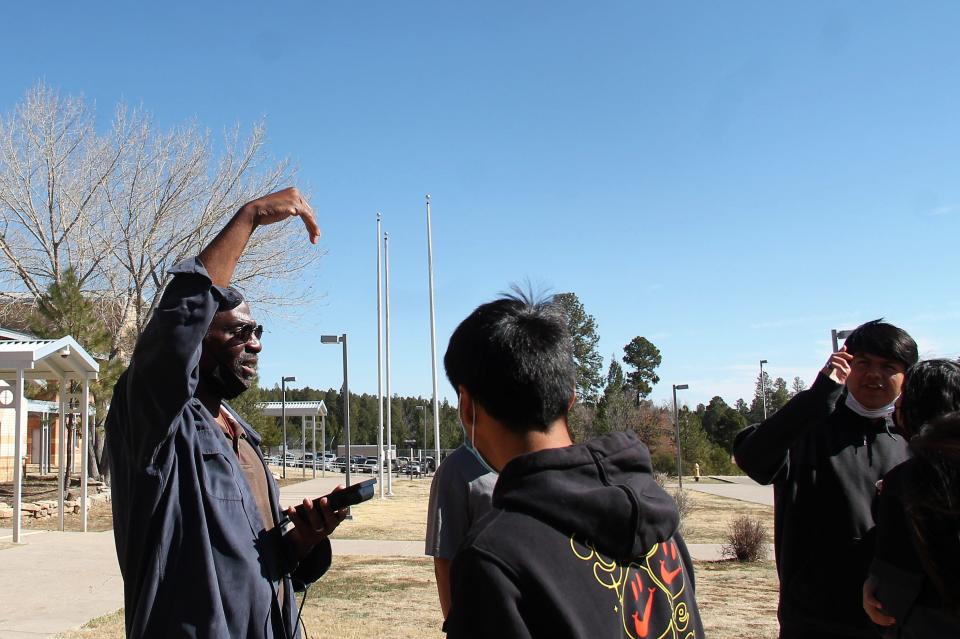Mescalero Apache students study air quality on Mescalero Reservation
Mescalero Sophomore Angel Enjady and her project partner Caydence Palmer are working on an air quality project that started last school year.
Part of the project is monitoring the three PurpleAir air quality sensors that are set up on the Mescalero Apache Reservation. Enjady and her class hope that more sensors can be set up.
"These sensors (are) collecting data and information about how the air differs here on our reservation with location and elevation as well and during different times of the year," Enjady said.
One of the sensors is located on the Mescalero Apache Middle-High School grounds, another is at a residence on the reservation and there's another by U.S. Highway 70.
The sensors are from a company called PurpleAir which posts data collected from the sensor on their interactive map every 10 minutes.

Information stored on the PurpleAir map is accessible to the public.
Enjady and her class are taught by Mescalero Apache High School Biology teacher Nate Raynor.
One of the things Enjady and her class are studying is the difference in air quality between the seasons, especially in the winter.
From July 2021: Education briefs: STEM teams compete in San Antonio
"When we were looking at this during the winter, we had seen that these (readings) were very elevated," Enjady said. "That is very common because during the winter, most air is compressed in general because it's so cold. So that makes our air quality even worse."
Another air quality issue on the reservation is the use of wood stoves to heat homes in the cold weather, Enjady said.

"Burning wood creates smoke and add that to compressed air and that's all that we're pretty much breathing sometimes," Enjady said. "Sometimes, like early mornings, (readings) will be really, really bad."
Raynor explained during the class that there really isn't a more environmentally sound alternative to wood burning for warmth in cold weather since propane and other alternatives release more chemicals into the air than wood.
Enjady had spoken about the air quality findings on Mescalero Apache Reservation at American Indian Science and Engineering Society conferences at both the state and national levels.
Raynor urged Enjady's classmates to do similar projects and presentations. When he goes to the conferences with students, Raynor said that he generally stays out of the spotlight.
"It shouldn't be just (Enjady) going to these national conferences," Raynor said. "The spotlight should be on you because you're the ones doing this."

Raynor recently was awarded a grant for $1,000 in Vernier data collection software, a one-year subscription to Vernier Graphical Analysis Pro and three hours of profession development form Vernier.
"With the grant we got from Vernier, we bought a whole bunch of Vernier equipment," Raynor said. "When you guys come back next year, you can use that equipment for your projects."
The grant was the Vernier Software & Technology 40th Anniversary grant which had 40 recipients nationwide.
Nicole Maxwell can be contacted by email at nmaxwell@alamogordonews.com, by phone at 575-415-6605 or on Twitter at @nicmaxreporter.
This article originally appeared on Alamogordo Daily News: Mescalero Apache students study air quality on Mescalero Reservation

